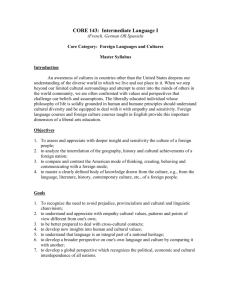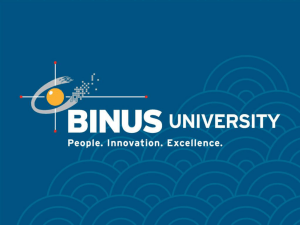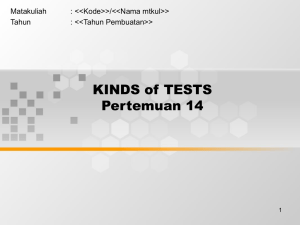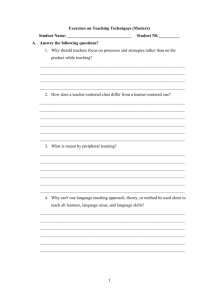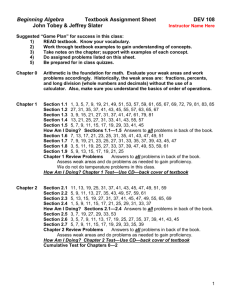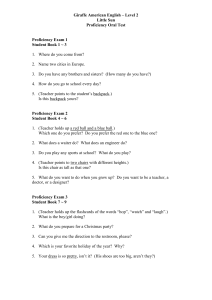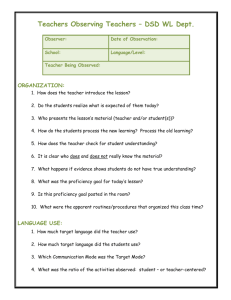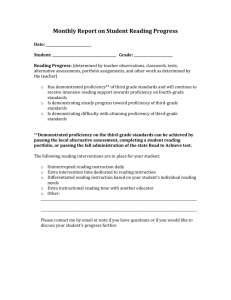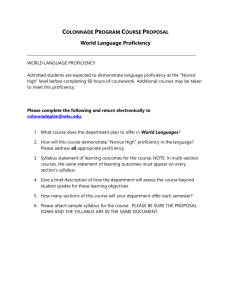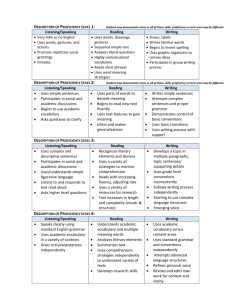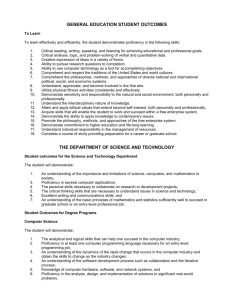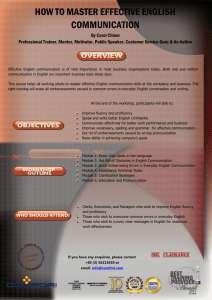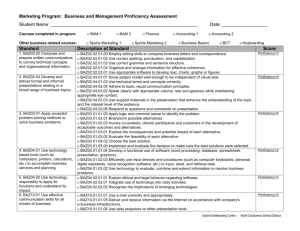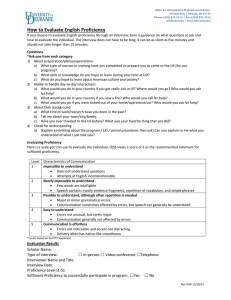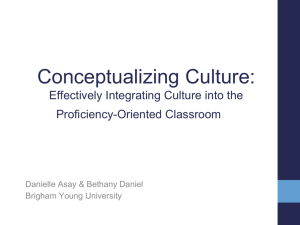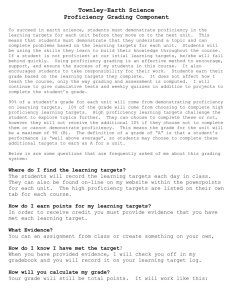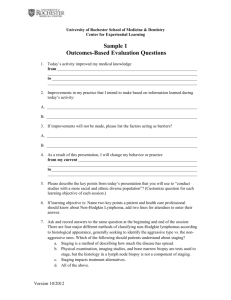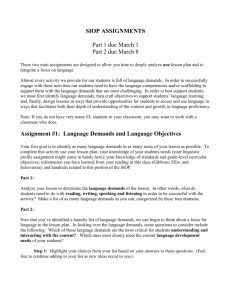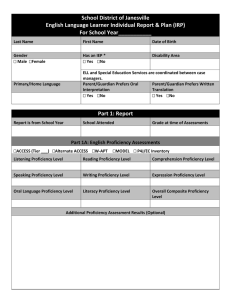CORE 141: LANGUAGE FOR COMMUNICATION 1
advertisement
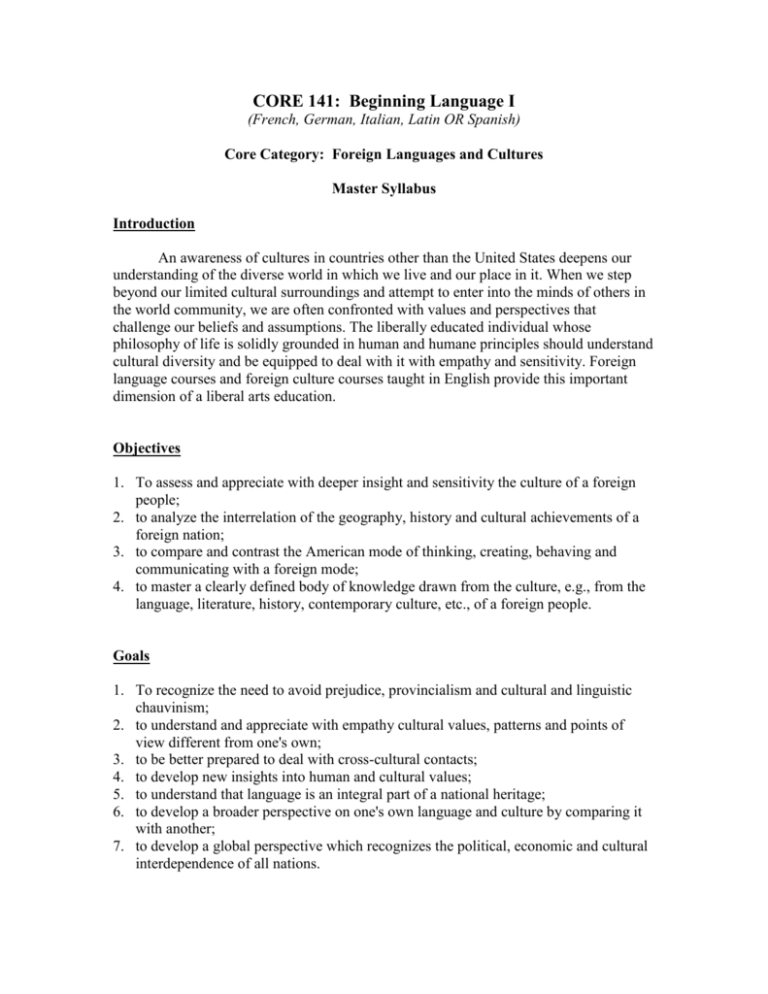
CORE 141: Beginning Language I (French, German, Italian, Latin OR Spanish) Core Category: Foreign Languages and Cultures Master Syllabus Introduction An awareness of cultures in countries other than the United States deepens our understanding of the diverse world in which we live and our place in it. When we step beyond our limited cultural surroundings and attempt to enter into the minds of others in the world community, we are often confronted with values and perspectives that challenge our beliefs and assumptions. The liberally educated individual whose philosophy of life is solidly grounded in human and humane principles should understand cultural diversity and be equipped to deal with it with empathy and sensitivity. Foreign language courses and foreign culture courses taught in English provide this important dimension of a liberal arts education. Objectives 1. To assess and appreciate with deeper insight and sensitivity the culture of a foreign people; 2. to analyze the interrelation of the geography, history and cultural achievements of a foreign nation; 3. to compare and contrast the American mode of thinking, creating, behaving and communicating with a foreign mode; 4. to master a clearly defined body of knowledge drawn from the culture, e.g., from the language, literature, history, contemporary culture, etc., of a foreign people. Goals 1. To recognize the need to avoid prejudice, provincialism and cultural and linguistic chauvinism; 2. to understand and appreciate with empathy cultural values, patterns and points of view different from one's own; 3. to be better prepared to deal with cross-cultural contacts; 4. to develop new insights into human and cultural values; 5. to understand that language is an integral part of a national heritage; 6. to develop a broader perspective on one's own language and culture by comparing it with another; 7. to develop a global perspective which recognizes the political, economic and cultural interdependence of all nations. Core 141 Page 2 Specific Objectives 1. 2. 3. 4. 5. 6. To understand and speak the foreign language at an elementary level; to write simple forms of the language; to use basic vocabulary related to some of the common experiences of everday life; to pronounce the sounds of the language in a reasonably accurate manner; to begin to develop proficiency in reading the language; to gain some knowledge of the culture of the foreign people. Teaching-Learning Strategies 1. The following definition of culture will be discussed: Culture is the way of thinking, feeling and acting characteristic of a particular people. It is a body of common understandings, ideas, attitudes, beliefs, values, symbols and behavior which act upon each other and are transmitted from one generation to another by means of language, traditions and institutions while evolving in response to changing circumstances. 2. The role of language as an integral part of culture will be emphasized. 3. The material in a grammar textbook will serve as the basis for oral and written exercises designed to develop the student's proficiency in the language. 4. Short cultural selections in the textbook will be read and serve as a basis for discussion of the culture. 5. Foreign cultural phenomena studied will be compared with American to show similarities and differences. 6. The foreign language will be used in the classroom to the greatest extent possible in studying both the language and the culture. 7. Audio-visual materials will be used. 8. There will be a minimum of three tests in addition to the final examination which will be comprehensive. At least one test will be given before mid-semester. 9. Oral proficiency of students will be evaluated on an ongoing basis. Catalog Description Pronunciation, fundamentals of grammar, exercises in speaking, understanding and writing the foreign language. Readings introduce the student to the foreign culture.
